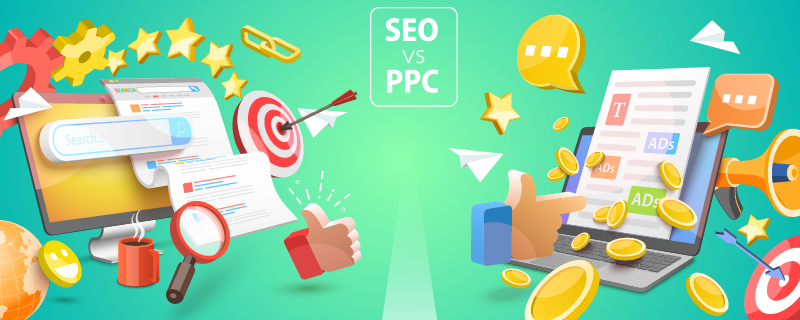Starting a business is hard. I should know, having started three of them myself. Like most startups, money is tight and it's really, really important to understand what's worth spending on. It's equally important to understand what you're return looks like.
Lately, I’ve been tangled up in another startup, one in which I am serving as Director of Marketing. We’re about a year past our official launch date, which is a good time to take a hard look at marketing campaigns we're executing organically and through paid ads.
So, being a year in, how is our marketing strategy holding up? And, why it is worth spending money on marketing when so much can be done for free? Let's compare paid and organic marketing and see what we find.
Charlie Rose addresses some things worth keeping in mind when considering just how long one might “wait” to see organic results in search engines. In my case we bought a domain name from a reseller with next to no idea if it was scarred by past owners. And, we started with minimal content, though the domain name itself is keyword-rich. For the most part our position at launch was such that organic recognition would be slow.
Understanding Organic Marketing
I have long been a proponent of organic, SEO marketing and I recognize its long-term value. A common misconception I see often is the notion that when a client gets a new website, in time it naturally will work its way up to page one on search engines. While it is true that amount of time in existence is a factor in SEO, fresh, relevant content is more important.
Need help getting your website optimized for SEO? Let me know.
The first five or six months of your startup's life are not a wait and see kind of thing: they are best spent investing time and effort into creating great content your audience will find valuable. So, while there may not be a price tag for organic content, maybe we can stop short of calling it free.
Benefits of Organic, SEO Marketing
The benefits here are many. For example, you (or your business) will own the content, and you can use and present it in multiple ways and places.
Organic content also has staying power: a meaningful blog post can stay relevant for years. And, at least to me, there is no better way to build brand awareness. In this sense, organic content and its application to SEO principles can be a compliment to paid strategies.
Paid Advertising for Your Startup
A new business often cannot wait for the world to discover its compelling, paradigm-shifting content on its own. Happily, paid advertising is much faster: in theory one can design an ad and landing page, get them both approved and running, and start collecting conversions in a single day.
Even when it takes a bit longer, paid strategies typically provide a path to much faster results. For a startup, often they are crucial in the effort to get a business name out and get potential customers in.
Benefits of Paid Ads
Speaking of potential customers, paid strategies offer the opportunity to be selective in targeting (Fuchs, 2020). Choices abound, and depending on the platform include options like geographic and demographic targeting, and even can be narrowed by education level, job title, or interests. In other words, paid ads allow exposure to a very specific type of customer: yours.
Keep in mind, while you are paying for access and, ultimately, clicks or impressions, these days your budget doesn’t have to be huge.
Cons of Paid and Organic Marketing
Both organic and paid advertising have their obstacles, most of which have been noted here already. It is a given that organic SEO typically takes a long time. What’s lost on many is that it also takes a lot of work.

Creating content can seem easy. Creating meaningful content can be hard, and doing so repeatedly can be exhausting, particularly in an instant gratification world where results may not be evident for months.
Paid content fits nicely into the vein of instant gratification. If everything comes with a price, paid strategies are, at first glance, pretty straightforward. Where it gets hazy is in the ROI, considering things like cost per click, cost per conversion, and more. In this sense, just like with organic content, one might reasonably expect to improve his or her effectiveness using paid marketing over time.
Wrapping Up
In the current business, now a year in, we use both paid and organic strategies.
Both have their place, and as content accrues our organic material compliments our paid strategies more. I do not think a sustainable business is easily built if modeled on paid ads alone, and strategically I embrace the staying power and future, stable growth associated with organic SEO.
This is not to suggest there will be a time when paid marketing isn’t important, but a healthy business might find the long-term scales tipped slightly to owned organic content.
About those three businesses? Two were successful, the other a spectacular failure. Hard work and a break or two along the way makes a difference, whether the strategy is paid, organic, or both.

